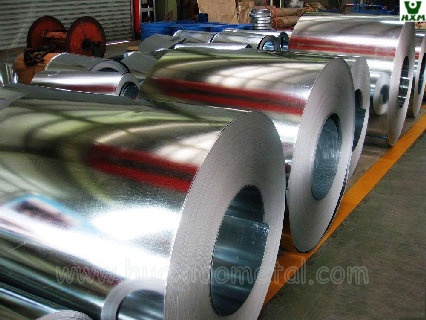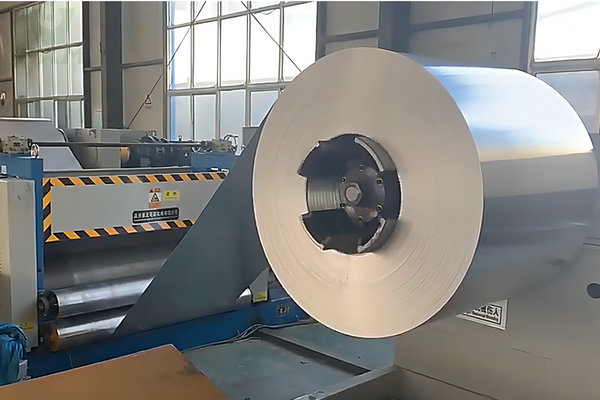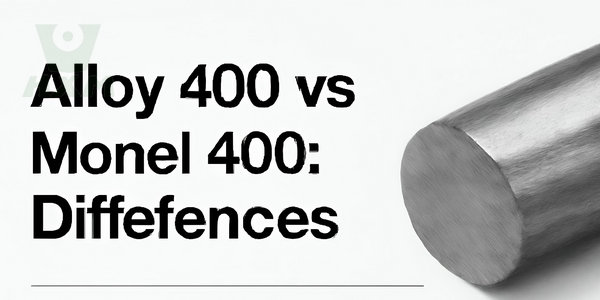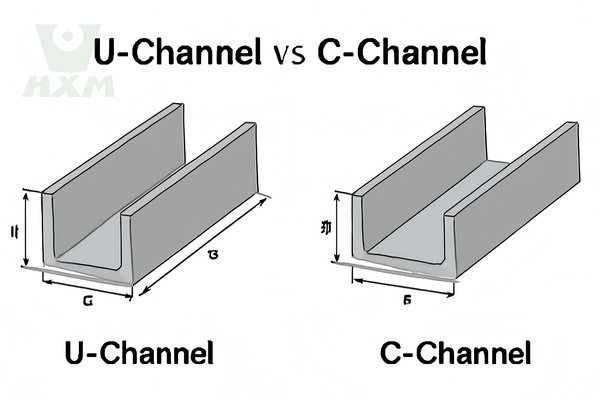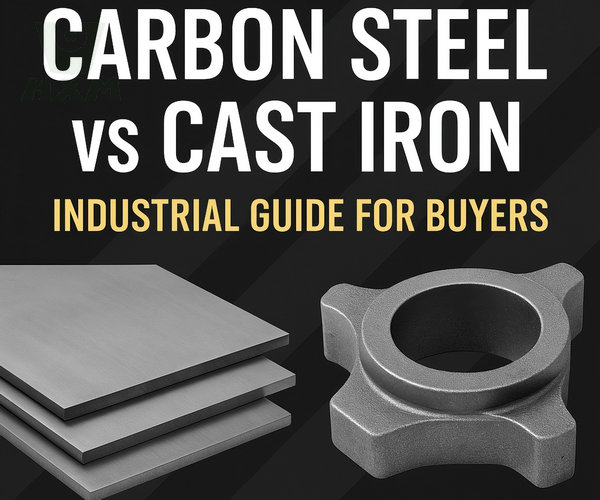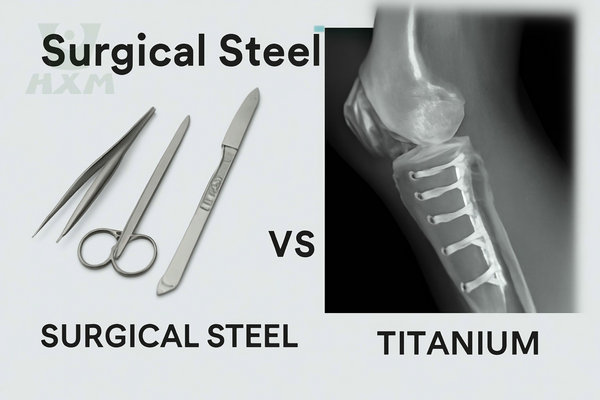When it comes to choosing materials for construction, manufacturing, or other applications, galvanized steel and aluminum are two prominent choices that each have their own advantages and disadvantages. Both materials are valued for their durability and performance, but they excel in different areas. This blog will dive into the key differences between galvanized steel and aluminum, and in the end, we will evaluate which is better, Galvanized Steel vs Aluminum.
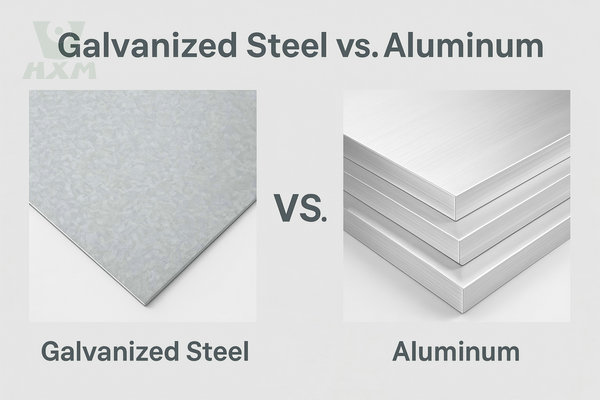
What is Galvanized Steel?
Galvanized steel is steel that has been treated with a zinc coating to improve its resistance to corrosion. The galvanizing process involves immersing the steel in molten zinc or applying the zinc by electroplating, which creates a protective coating that increases the durability of the steel.
What is Aluminum Metal?
Aluminum is a lightweight, silvery-white metal known for its excellent strength-to-weight ratio and natural corrosion resistance. Aluminum is often alloyed with other metals to enhance its properties and is used in a wide range of applications.
What is the Difference Between Galvanized Steel vs Aluminum?
This article will define galvanized steel and aluminum and compare them in terms of usage, cost, strength, corrosion resistance, weight, thermal conductivity, welding performance, cleanability, and aesthetics.
Composition Comparison: Galvanized Steel vs Aluminum
| Element | Galvanized Steel | Aluminum |
|---|---|---|
| Iron (Fe) | Majority of composition | – |
| Zinc (Zn) | Coating to provide corrosion resistance | – |
| Aluminum (Al) | – | 99%+ pure aluminum |
| Carbon (C) | Small percentage | – |
Galvanized Steel: Galvanized steel is carbon steel coated with a thin layer of zinc to improve its corrosion resistance. This coating makes galvanized steel a reliable option for environments where the material will be exposed to moisture or harsh elements.
Aluminum: Aluminum, on the other hand, is a lightweight metal that is naturally corrosion-resistant, thanks to its oxide layer. It is commonly used for applications requiring low weight and high durability.
Mechanical Properties Comparison
Galvanized Steel:
Strength: Galvanized steel offers a high level of strength and toughness. It can handle heavier loads compared to aluminum and is ideal for construction materials, support beams, and frames.
Durability: Galvanized steel is durable, especially in corrosive environments, thanks to the zinc coating. However, the protective layer can wear off over time, especially in abrasive or harsh conditions.
Aluminum:
Strength-to-Weight Ratio: Aluminum is known for its excellent strength-to-weight ratio, which makes it ideal for applications where reducing weight is critical, such as aerospace and automotive industries.
Corrosion Resistance: Aluminum’s oxide layer provides excellent resistance to corrosion, making it suitable for use in marine environments and other areas exposed to moisture and weather.
Ductility: Aluminum is highly ductile and can be easily formed and molded, which is beneficial for complex designs and shapes.
Application of Galvanized Steel vs Aluminum
Galvanized Steel:
- Construction: Commonly used in structural components, roofs, and fences due to its strength and durability.
- Automotive: Mainly used in vehicle parts and chassis to prevent rust and extend the service life of vehicles.
- Manufacturing: Used in home appliances, furniture, and HVAC systems, products with protective coatings are required.
Aluminum:
- Aerospace: Commonly used in aircraft and spacecraft due to its lightweight and high strength.
- Transportation: Used in vehicles, trains, and bicycles to reduce weight and improve fuel efficiency.
- Construction: Used in window frames, curtain walls, and roofing materials, favored for its versatility and aesthetics.
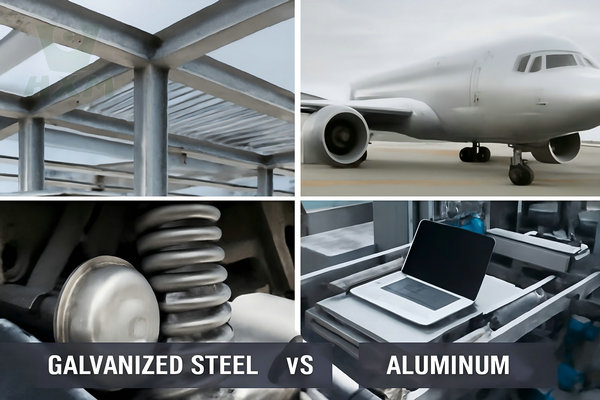
Looking for expert advice on Galvanized Steel vs Aluminum?
Huaxiao Metal provides tailor-made solutions to help you choose the right material for your project. Whether you need durable galvanized steel or lightweight aluminum, contact us today for a competitive quote!
Contact Us TodayCost of Galvanized Steel vs. Aluminum
Galvanized Steel:
Generally less expensive than aluminum. The cost of galvanized steel is affected by the price of the steel and the galvanizing process, making it a cost-effective option for applications with a limited budget but requiring corrosion resistance.
Aluminum:
Aluminum is generally more expensive, primarily due to the cost of the raw materials and the high energy consumption of the production process. However, its unique properties and advantages often make this higher cost worthwhile in specific applications.
Strength of Galvanized Steel vs. Aluminum
Galvanized Steel:
Galvanized steel has a high tensile strength and is suitable for applications that require load-bearing. The zinc coating does not affect the strength of the steel, but it increases its resistance to environmental factors.
Aluminum:
While aluminum is generally not as strong as galvanized steel, it is still strong enough for many applications. Aluminum alloys can be tailored to achieve specific strength requirements, making it flexible for a variety of applications.
Corrosion Resistance of Galvanized Steel vs. Aluminum
Galvanized Steel:
The zinc coating is effective in preventing rust and corrosion. However, the coating can degrade over time, especially in harsh environments, so it needs to be maintained or replaced periodically.
Aluminum:
Aluminum’s naturally occurring oxide layer provides excellent corrosion resistance. This protective film forms spontaneously when aluminum is exposed to air and effectively prevents further oxidation, making aluminum suitable for use in humid and chemical environments.
Weight of Galvanized Steel vs. Aluminum
Galvanized Steel:
Galvanized steel has a higher density and is heavier than aluminum. This property can be a benefit in applications where extra weight is needed for stability, but can be a disadvantage in projects where weight reduction is a concern.
Aluminum:
Aluminum weighs much less than galvanized steel. This property is very beneficial in applications where weight reduction is a concern, such as in the aerospace and transportation industries, where every kilogram saved can improve performance and fuel efficiency.
Thermal Conductivity of Galvanized Steel vs. Aluminum
Galvanized steel:
Galvanized steel has a low thermal conductivity, which means it is not as good at conducting heat as aluminum. Therefore, in applications involving thermal management, galvanized steel may not perform as well as aluminum.
Aluminum:
Aluminum has high thermal conductivity, making it suitable for applications that require efficient heat dissipation. Aluminum is often used in heat exchangers, radiators, and cooling systems, where it is favored for its good thermal conductivity.
Welding Performance of Galvanized Steel vs. Aluminum
Galvanized Steel:
Welding galvanized steel can be difficult because the zinc coating produces harmful gases when heated. Welding galvanized steel requires special techniques and safety measures.
Aluminum:
Aluminum is relatively easy to weld and can be welded using a variety of methods such as TIG and MIG welding. Its low melting point and good thermal conductivity make the welding process smoother and suitable for many applications.
Cleanability of Galvanized Steel vs. Aluminum
Galvanized Steel:
Galvanized steel surfaces are relatively easy to clean, but stains or residue may develop over time. Periodic maintenance is required to maintain its appearance and functionality.
Aluminum:
Aluminum is generally easy to clean and maintain. Its smooth surface is less susceptible to staining and requires less cleaning effort. Aluminum’s low maintenance requirements add to its appeal.
Aesthetics of Galvanized Steel vs. Aluminum
Galvanized Steel:
Galvanized steel has a distinctive industrial look with a noticeable metallic sheen. While practical, it may not be aesthetically pleasing in certain design or architectural settings.
Aluminum:
Aluminum offers a modern, sleek look and can be anodized, painted, or polished to suit a variety of design aesthetics and application needs.
Looking for expert advice on Galvanized Steel vs Aluminum?
Still comparing galvanizing and aluminum for your next construction or fabrication project? Let Huaxiao Metal help! With years of experience in both materials, we offer quality products and expert advice. Request a quote today and make the right material choice!
Request A Quote NowIs Aluminum better than Galvanized Steel?
Whether aluminum is better than galvanized steel depends mainly on the specific application requirements and performance indicators that are prioritized. Here are the advantages and applicable scenarios of aluminum and galvanized steel to help you decide which material is better for your needs:
Advantages of Aluminum
- Lightweight: Aluminum has a much lower density than galvanized steel, which makes it very advantageous in applications where weight reduction is required, such as aerospace and transportation.
Strong corrosion resistance: Aluminum’s naturally formed oxide layer provides excellent corrosion resistance, making it perform better in humid or chemical environments and reducing maintenance requirements.
High thermal conductivity: Aluminum has high thermal conductivity and is suitable for applications that require efficient heat dissipation, such as radiators and heat exchangers.
Aesthetics: Aluminum can be treated with a variety of surface treatments, such as anodizing, spraying, or polishing, providing a modern look and design flexibility, suitable for high-end architectural and decorative applications.
Good weldability: Aluminum is relatively easy to weld and can use a variety of welding methods, suitable for applications that require welding.
Advantages of Galvanized Steel
- Lower cost: Galvanized steel is generally cheaper than aluminum and is suitable for projects with limited budgets, especially scenarios that require large areas.
High Strength: Galvanized steel has a high strength and is suitable for load-bearing structures and applications, such as buildings and automotive parts.
Wear Resistance: The surface of galvanized steel is treated with zinc coating, which provides good wear resistance and is suitable for environments that require durability.
Lower Thermal Conductivity: Although galvanized steel does not conduct heat as well as aluminum, this may be beneficial in some cases to reduce heat conduction.
Cleanability: The surface of galvanized steel is easy to clean, but regular maintenance is required to maintain its appearance and function.
If your main need is to reduce weight, improve corrosion resistance, or seek aesthetics, aluminum may be a better choice.
If your focus is cost-effectiveness, strength requirements, or wear resistance, galvanized steel may be more suitable for your project.
Don’t know which is better for your application—Galvanized Steel or Aluminum?
Galvanized Steel or Aluminum? Huaxiao Metal offers detailed comparisons, technical support, and fast delivery. Contact our sales team now and get a quote for your preferred metal material!
Request A Quote NowWhich Material Should You Choose?
The choice between galvanized steel and aluminum ultimately comes down to your project’s needs. Huaxiao Metal offers the following to help you make a quick decision:
Choose galvanized steel: If your project requires high strength, durability, and cost-effectiveness in non-harsh environments, galvanized steel is an excellent choice. It is well-suited for construction, automotive parts, and outdoor structures.
Choose aluminum: If your project requires a lightweight material, excellent corrosion resistance, and improved performance in extreme environments, aluminum is a better choice. It is commonly used in aerospace, marine applications, and high-end packaging.
For more information on how these materials can benefit your project, contact our experts today. We are here to help you choose the right material for your needs!
Why Choose Huaxiao Metal for Galvanized Steel and Aluminum?
At Huaxiao Metal, we pride ourselves on delivering high-quality galvanized steel and aluminum materials tailored to meet the specific needs of your project. Here’s why our clients trust us:
Superior Quality: We use only the best materials and the latest technology to ensure that our galvanized steel and aluminum products meet the highest industry standards.
Expertise You Can Trust: With years of experience in the industry, our team offers expert advice and technical support, ensuring you get the most suitable material for your project.
Customization: Whether you need standard sizes or customized solutions, we offer flexible options to meet your exact requirements.
Competitive Pricing: We provide high-quality materials at competitive prices, helping you get the best value for your investment.
Fast Delivery: We understand the importance of timelines. Our efficient supply chain ensures timely delivery, keeping your project on schedule.
Excellent Customer Service: Our customer service team is always available to answer your questions, provide guidance, and ensure a seamless experience from order to delivery.
Choose Huaxiao Metal for your galvanized steel and aluminum needs, and experience the difference in quality, service, and expertise.
Contact us today to get a free quote for galvanized steel or aluminum alloy!
FAQ
Can galvanized steel and aluminum be used interchangeably?
While both materials have their benefits, they are not interchangeable in all cases. Galvanized steel offers superior strength and toughness, while aluminum excels in weight reduction and corrosion resistance. Choose based on the specific needs of your project.
How long does galvanized steel last compared to aluminum?
Galvanized steel typically lasts 10-20 years before the zinc coating starts to degrade, especially in harsh conditions. Aluminum, however, can last much longer without significant degradation due to its natural corrosion resistance.
Which material is more cost-effective: galvanized steel or aluminum?
Galvanized steel is typically more cost-effective than aluminum. The production of galvanized steel involves a simple process of coating carbon steel with zinc, making it a budget-friendly option. Aluminum, however, tends to be more expensive due to the extraction and refining process involved.
What is the difference between galvanized steel and aluminum in terms of corrosion resistance?
While both galvanized steel and aluminum offer excellent corrosion resistance, aluminum is naturally more corrosion-resistant due to the oxide layer it forms when exposed to air. Galvanized steel, on the other hand, is coated with zinc to provide corrosion resistance, but the coating can wear away over time, especially in harsh environments.
Which material is better for marine environments: galvanized steel or aluminum?
Aluminum is generally the better choice for marine environments, as it is highly resistant to saltwater corrosion. Galvanized steel can also be used in marine applications, but it may require more maintenance over time, especially if the zinc coating is damaged.
How does the weight of galvanized steel compare to aluminum?
Aluminum is much lighter than galvanized steel, making it an ideal material for applications such as aerospace, automotive, and packaging where weight reduction is a priority. Galvanized steel is heavier but stronger.
In Conclusion:
Galvanized steel and aluminum each have unique advantages and are suitable for different application scenarios. Galvanized steel excels in strength, cost-effectiveness, and corrosion resistance, and is suitable for projects that require load-bearing and limited budgets. Aluminum has advantages in lightness, corrosion resistance, and aesthetics, and is particularly suitable for applications with high requirements for performance and appearance. Whether to choose aluminum over galvanized steel depends on the specific needs of the project and the most important factors.

